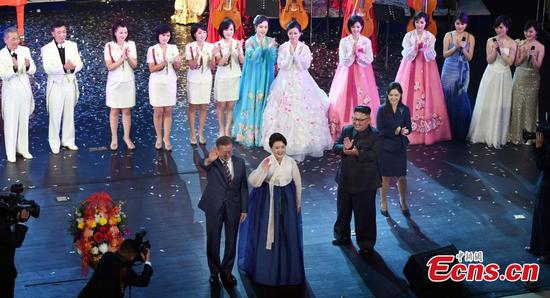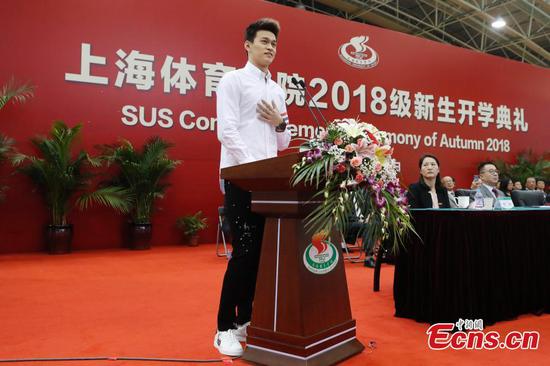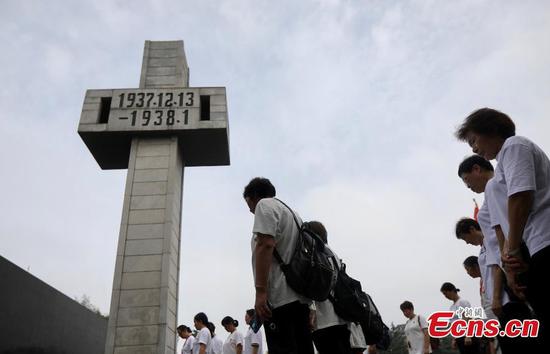Japanese Prime Minister Shinzo Abe won a third consecutive term as president of the ruling Liberal Democratic Party (LDP) on Thursday, which will give him a chance to become Japan's longest-serving prime minister.
In the two-horse election against former Defense Minister Shigeru Ishiba, Abe secured 553 out of a total of 810 votes cast by LDP Diet members and proportioned out to some 1 million rank-and-file party members across the country, while Ishiba got 254 votes.
Specifically, Abe won 329 out of ballots cast by Diet members and 224 by rank-and-file party members, while Ishiba got 73 from legislators and a better-than-expected 181 from rank-and-file members, whose votes are believed to better reflect public opinion.
Abe, who turns 64 on Friday, stepped down as LDP chief and prime minister in 2007 citing health reasons.
He retook office as prime minister in 2012 after the LDP ousted from power the now-defunct Democratic Party of Japan, and was re-elected unopposed in 2015 for second consecutive three-year term.
The LDP extended in 2017 the party president's maximum tenure from two consecutive three-year terms to three consecutive terms, which was generally considered an attempt to pave the way for an extended Abe administration till 2021.
In Japan, the leader of the party or party coalition that takes over half of the seats in the lower house would assume the position of prime minister and there is no limit to the prime minister's term.
Abe's third consecutive term as LDP president will expire in September 2021, and as the LDP and its coalition partner Komeito dominate both chambers of the national parliament, it means that Abe also won the chance to serve as prime minister for the next three years.
The victory on Thursday will also give Abe the opportunity to push for his long-cherished dream of revising Japan's pacifist Constitution for the first time since it took effect in 1947.
Abe has proposed last year to make explicit reference to the Japanese Self Defense Forces in the war-renouncing Article 9 of the Constitution, to put an end to arguments the Japanese troops are "unconstitutional."
"It's now time to tackle a revision to the Constitution. Let's work together to create a new nation for the sake of the people," Abe said Thursday after winning the election.
Abe has said last month that the ruling party aims to submit a bill to amend the Constitution in the extraordinary Diet session this autumn.
Following the victory, Abe is scheduled to leave for New York to attend the UN General Assembly.
He is set to reshuffle his Cabinet and the party's leadership lineup in October, local media reported, quoting government sources.


















































